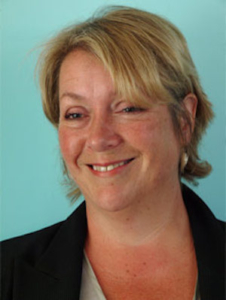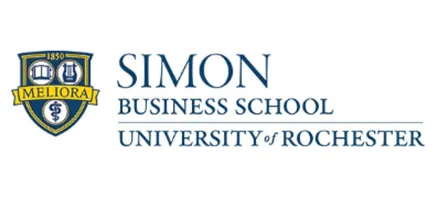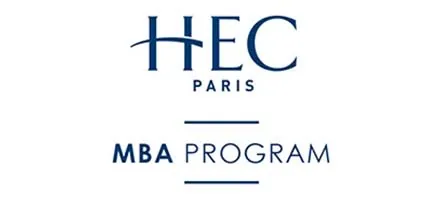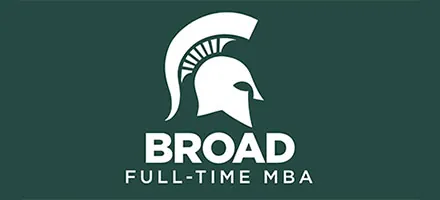
Oxford Saïd Business School released its 2019 employment report showing a jump in overall employment rate. Greg Funnell photo
Brexit didn’t cramp Oxford MBAs’ style. Will coronavirus?
As Oxford University’s Saïd Business School prepares to begin a school year amid an unprecedented global health crisis — on a physically distanced campus where on-demand digital content will support small-group learning — the school has released the 2019 jobs report for its one-year MBA program, reporting a third consecutive year of employment rate growth and another bump in average base salary.
Despite Brexit, the UK’s divorce from the European Union, Oxford Saïd’s MBA program employment rate rose to 95% in 2019, up from 92% the previous year. The average starting salary for the 303 graduates increased to £73,433 (about $96,000 according to current exchange rates), up from £72,618 for the 2017-18 cohort, or 1.1%. For comparison, MBAs from INSEAD, in France, made a median $105,900; from London Business School, an average of about $107,000; and from IE Business School in Spain, an average of $91,467. In its 2020 employment report, Cambridge University Judge Business School — a one-year program like Oxford Saïd’s — reports that its MBAs made an average of $122,613.
At Oxford, the work of career services staff continues to pay off, Director of Career Development Joy Bussell says.
“We continue to invest in our students’ career journeys through our wrap-around support: before they arrive in Oxford, throughout their teaching, and beyond,” she says in an introduction to the new jobs report.
MORE THAN 17% OF 2019 OXFORD MBAs WENT TO WORK IN NORTH AMERICA

Joy Bussell. Oxford photo
The biggest destination industry sector for Oxford MBA students, global industry, represents 40.5% of job-seeking students. Global industry includes consumer packaged goods, energy/utilities, healthcare, manufacturing, retail, and technology. Another 30.8% secured roles in finance and 16.8% in consulting. In a small increase from the previous year, some 11.9% of the class accepted roles in “impact” careers, which include jobs in government, nonprofit, and social impact fields.
Consulting was once more the highest-paid industry for Oxford MBAs, with an average starting salary of £81,139 ($106,154), followed by finance (£74,305, or $97,213), global industry (£71,262, or $93,232), and social impact (£61,365, or $80,284). Within global industry, tech MBAs were paid £70,970 ($92,850), while all others averaged £71,807 ($93,945). Just over half of Oxford’s MBA grads found employment in the UK and Europe (51.4%), while a significant number of students secured roles in North America and Asia (17.3% and 17.8%, respectively).
The good employment news came “against the backdrop of an uncertain political and economic environment, as the UK headed toward Brexit in January and the ensuing transition,” Bussell says. “Our students are successfully pursuing careers globally, across a broad spectrum of industries and functions, including not-for-profit organizations, demonstrating the international mobility and capability of the Oxford MBA.”
She adds that efforts to ensure that positive employment news continues “for the MBA 2019-20 cohort and beyond” include the online Oxford Saïd Careers Academy pre-arrival program, the summer term SPRINT program, and the fortified Alumni Capstone Plus Program.
PREPARING FOR AN UNPRECEDENTED YEAR
Of course, positive outcomes this year (and possibly next) depend on events outside Oxford’s control. What is in the school’s control: how it handles the coronavirus pandemic on its own campus.
The 2019 jobs report was released as the Saïd School prepares to welcome 2020-21 MBA students to a much different campus — but one that will reflect the quintessential Oxford style of learning, with a substantial portion of the program delivered in small groups led by the school’s faculty. Teaching groups have been slashed from 80 to 20 students, with in-person classes supported by digital content. Crowdless, an app developed within the Oxford Foundry, the Saïd School’s startup incubator, will be used to help students maintain social distancing rules.
It’s an approach that will “deepen and extend the shared learning that has always been at the heart of our MBA, while giving us the flexibility to respond to evolving guidance on public health and physical distancing,” Dean Peter Tufano says in a news release.
Bussell described how her department’s support for students has moved entirely online, including network events. Students will miss face-to-face interaction with potential employers, she says, but she describes how online networking can actually lead to more opportunities — including opportunities to meet higher-level company representatives than might otherwise occur. “During lockdown, senior people have been much more willing to have those conversations,” she says.
Meanwhile, the Oxford MBA is introducing a timely new core course module: “Capitalism in Debate” will task students with exploring and debating opposing arguments in three themes: purpose, impact and sustainability. Apart from the pandemic, Oxford Saïd is responding to racial unrest across the globe by launching a virtual lecture series called “Oxford Minds” that will examine racism, white privilege, and how the legacies of oppression play out in the present.
2020 LOOKING GOOD FOR JOBS SO FAR
Though the school did not share any 2020 data, it says in a news release that MBA hiring activity for the current 2019-2020 class is roughly in line with previous years. Anticipating headwinds, however, Oxford Saïd’s careers team has “bolstered support in expectation of harsher conditions within the job market, including psychological support,” Bussell says. “Whereas previously first or second interviews might have been online, now the entire recruitment process is done virtually, so we have really strengthened programming on virtual presentation skills and developing a strong personal profile and message.”
Former nuclear submarine officer and 2019-2020 MBA candidate Jacob Cavey describes in a news release how finding his first civilian job upon leaving the U.S. military was a “daunting” task. Unsure of his next step, he reached out to Oxford’s Career Development Centre. Bussell’s team recommended he search for a job based on culture and values, rather than hard skills.
“This not only changed my approach to job hunting, but also transformed it into an exciting challenge,” says Cavey, who now has a job offer from a multinational tech company. “All of the resources helped me prepare for my first job interview, and I could not be more appreciative of their unwavering commitment to my class.”
See Oxford Saïd’s 2019 employment report here.
DON’T MISS: AS BREXIT LOOMS, OXFORD SAÏD GRADS STILL GET PAID or MEET OXFORD SAÏD’S MBA CLASS OF 2019









